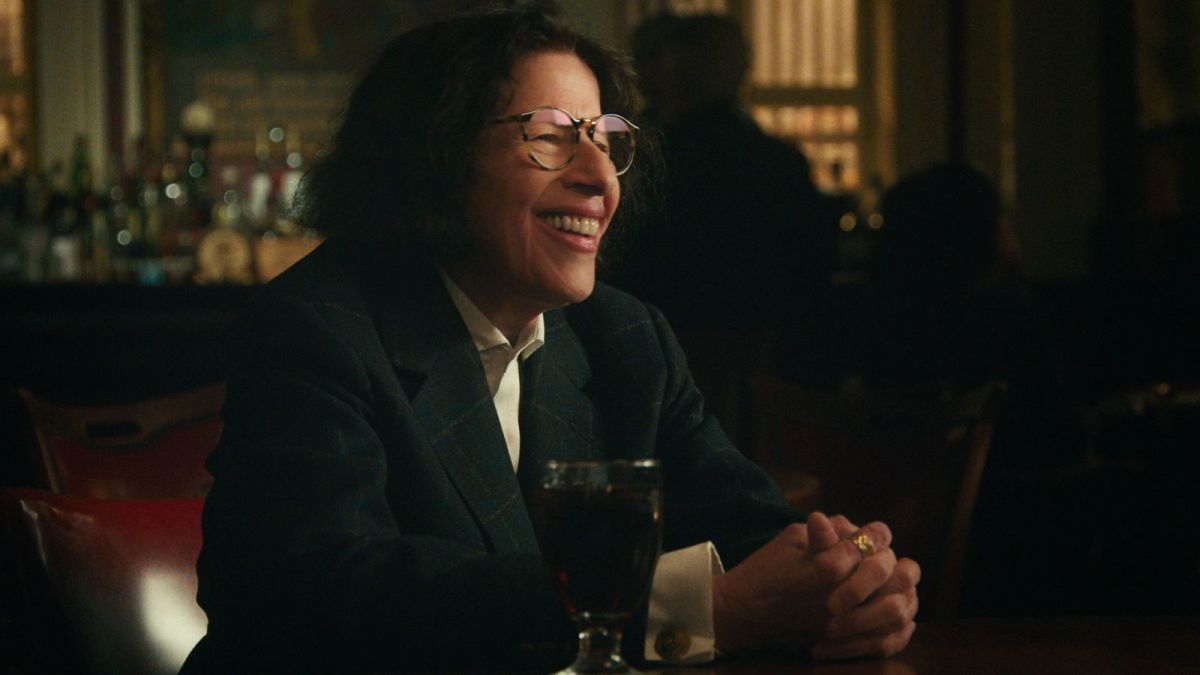Oftentimes the quality of a work can be judged by the ease with which viewers consume it. This is certainly the case with Martin Scorsese’s new Netflix documentary series, Pretend It’s a City, featuring his longtime friend, author Fran Lebowitz. The 30-minute episodes of Pretend It’s a City fly by with the same poise as Scorsese’s best feature films. Lebowtiz’s magnetic, acerbic, and cut-to-the-bone wit comes through the screen, and by the end of the series, you cannot help but feel you’ve made a dear friend.
Named after her personal manifesto, Pretend It’s a City is seven episodes of Lebowitz complaining about every topic imaginable. For those unfamiliar with Lebowitz or why a legendary director such as Scorcese would document her, consider that she’s been called the modern-day Dorothy Parker. Parker, part of New York’s Algonquin Round Table writer’s group of the 1920s, broke ground for women writers and was known for her elegant prose and killer wit. Lebowitz got her start at age 20, when she moved in the ‘70s from her hometown of Morristown, New Jersey to Manhattan, and landed a job as a columnist at Andy Warhol’s Interview magazine. Lebowitz went on to pen two critically acclaimed books, Metropolitan Life and Social Studies, until a serious case of writer’s block transformed her from professional writer to professional talker. Lebowitz’s opinions are eloquent, razor-sharp, and frank—all on glorious display in Pretend It’s a City.
Every episode stitches together illuminating bits of conversations between Scorsese and Lebowtiz, as well as interviews with Spike Lee, David Letterman, Alec Baldwin, and Olivia Wilde from over the years. The conversations unfold as Lebowitz walks through the streets of New York City—her disapproving glances at her fellow man worth a thousand words—and at The Players social club in Manhattan.
One quintessential New Yorker to the other, Scorsese prompts Lebowitz to discuss topics as serious as the #MeToo movement or as mundane as her distaste for former mayor Michael Bloomberg’s choice of street furniture. When Lebowitz turns to #MeToo, she explains why she will always believe the woman, as would anyone who was a young woman; Lebowitz relates how she was unable to get a job as a waitress in New York during her 20s because she wouldn’t sleep with the manager. Lebowitz’s takes on the reality of job-hunting as a woman and sexual harassment stem from her personal experiences, though they are as relevant in 2021 as they were in the ‘70s.
Lebowitz’s thoughts on the #MeToo movement are about as heavy as Pretend It’s a City gets. For much of the series, you’ll catch yourself laughing uncontrollably like Scorsese, who is often guffawing at what comes out of Lebowitz’s mouth. So does Lee, who badgers Lebowitz in the fifth episode on why she hates sports. Lebowitz does not apologize to Lee, a sports fanatic. Lee continues to interrogate her, but if Pretend It’s a City teaches us one thing, it’s that Fran Lebowitz does not change her mind. When asked what she does on Super Bowl Sunday, Lebowitz tells Lee that it’s a very good day to go to a restaurant. She confesses that she went to the famed first Muhammad Ali vs. Joe Frazier fight, and when Lee asks why, she describes the event as a wonderful fashion and cultural event—completely on brand for Lebowitz.
Engaging, clever, and one-of-a kind, Lebowitz’s charm and curmudgeonly wit will draw you to Pretend It’s A City. Finishing an episode is like finishing a New York hot dog—you wish there was more. Pretend It’s A City is documentary filmmaking in its prime, where viewers simply fall through episodes, owing to their brilliant editing and scene framing—and most importantly, the delightful presence of its subject.









